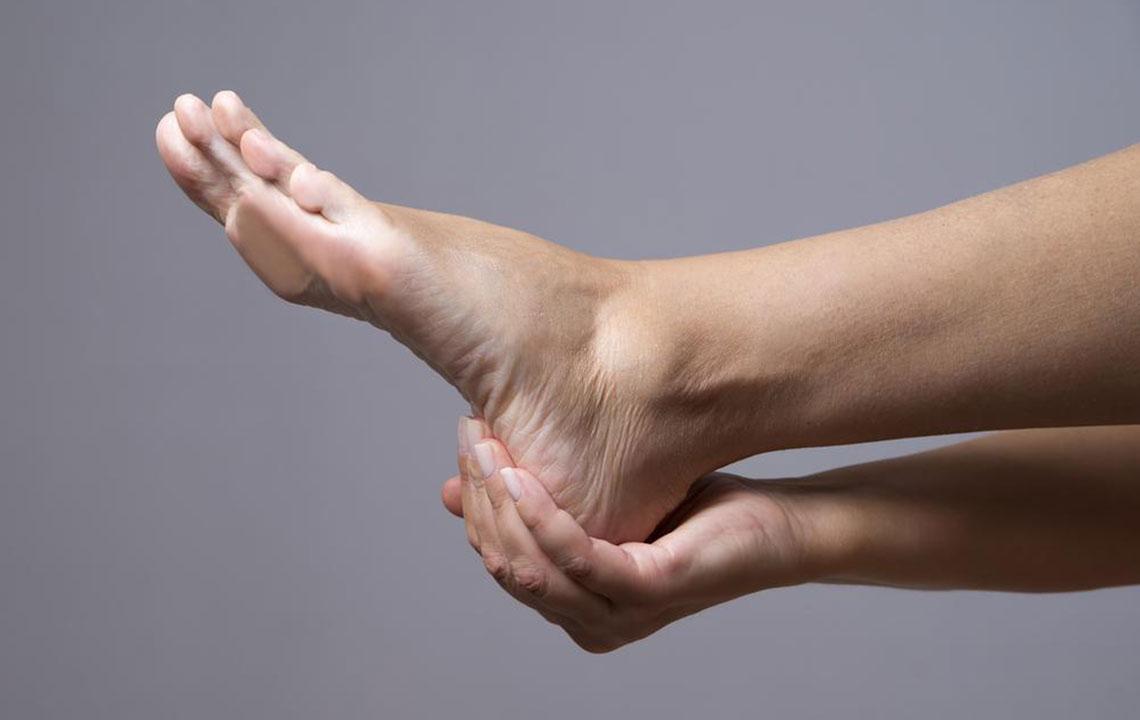Effective Ways To Treat Peripheral Neuropathy Foot Pain
Peripheral neuropathy foot pain occurs due to the damage of nerve fibers. These nerve fibers connect your brain and spinal cord to the feet. The nerves can enter a damaged state because of tissue injury. This injury can happen due to an external injury or because of infection. As a result, you will feel a continuous pain in the feet or around the feet. Below, we provide a basic overview of what is neuropathic foot pain, what are its causes, symptoms, how is neuropathic foot pain diagnosed, and some ways to treat neuropathic foot pain.
What is neuropathic foot pain?

The peripheral nervous system of the human body is an interconnected structural system. It starts from the brain, passes through the spinal cord, and then connects to various parts of the body: our arms, hands, feet, legs, and other vital body parts. The main job of the nerve fibers or tissues is to deliver nervous signals. The brain regulates the activity in the feet, for example, through nerve fibers. In turn, we feel the physical sensation “in” our feet.
In other words, body parts are connected to the brain to receive communication signals. It also sends back the signals to help the body function.
The causes of neuropathic foot pain
Neuropathic foot pain is a disorder which occurs when the nerves malfunction. The web of nerves connecting the brain and spinal cord to the feet get damaged and/or become dysfunctional. It can happen because of various reasons such as the following:
- Excess alcohol intake
- Spinal injuries or leg and hip disorders
- If you are a diabetic or a cancer patient
- If you are overweight
- External injuries
- Chronic disorders
- Kidney disorders
- Arthritis
- Neurological disorders
- Bone marrow disorders
- Deficiencies of Vitamin B1, B6, B12, and Vitamin E
- Age: People over 40 are prone to neuropathic foot pain
Symptoms of neuropathic foot pain
A patient suffering from neuropathic foot pain will likely experience the following symptoms:
- Shooting pains
- Numbness
- Tingling in the feet
- A heavy feeling in the feet or legs, or signs of inactivity in the foot
- Skin thinning
- Low blood pressure
- Heavy sweating
- Diarrhea or constipation
- Difficulty in digestion
- Back pain
As everybody is not the same, not every patient will feel every symptom. Depending on the exact condition, patients may experience one or more of the symptoms.
How is neuropathic foot pain diagnosed?
At the slightest hint of any of the above-mentioned symptoms, you should consult a doctor. For example, if you feel a stabbing pain in the feet, you should consult a doctor. The first round of examination usually involves an inspection of the injury site by the doctor. Your doctor will also ask you questions to describe the pain. Later, blood tests will help determine the vitamin deficiency. These tests will also assess the blood sugar levels and check the thyroid level. Also, the doctor will conduct nerve tests using electrodes, CT scan, or an MRI to determine the cause of the pain.
Some ways for treating peripheral neuropathy foot pain
Treatment using medicines
There are over-the-counter medicines like aspirin and i-brufen which will help ease the pain. However, use these in moderation. You cannot take these drugs on a long-term basis. They are strong pain killers and can cause discomfort or other stomach problems. Also, if you consume alcohol often, it is recommended to not take these medicines.
Prescription-based medicines help you deal with severe pain. Such drugs can be non-steroidal anti-inflammatory drugs, strong painkillers like morphine, or anti-depressants. Other medicinal treatments include capsaicin creams to treat skin burns or irritation.
Therapies-based treatment
Transfusion: The physician removes blood from the body to extract antibodies. After removing the antibodies, the treated blood is sent back into your body for improved circulation. Through this treatment, protein is released into the body to act as new antibodies.
Physical therapy for the patient strengthens muscles and makes feet movement flexible. A surgery is only needed when nerves are under extreme stress, or if the patient has a tumor. Ergonomic casts or splints provide support to the feet and legs and help relieve pain. They hold your feet in the right position to avoid any further damage.
The patient can practice self-care by going for acupuncture or massage therapy. It is best to avoid alcohol and smoking or tobacco; these can all lead to further nerve damage. Eat a healthy diet and exercise. Furthermore, the following tips are recommended for self-care to relieve neuropathic foot pain:
- Protect your feet by wearing shoes.
- Clean your feet to avoid the risk of infection.
- Don’t stress your feet.
- Avoid sudden jerky movements and be careful that you don’t slip and fall.
- Don’t let your feet lie idle, instead, make a conscious effort to move them at regular intervals.

